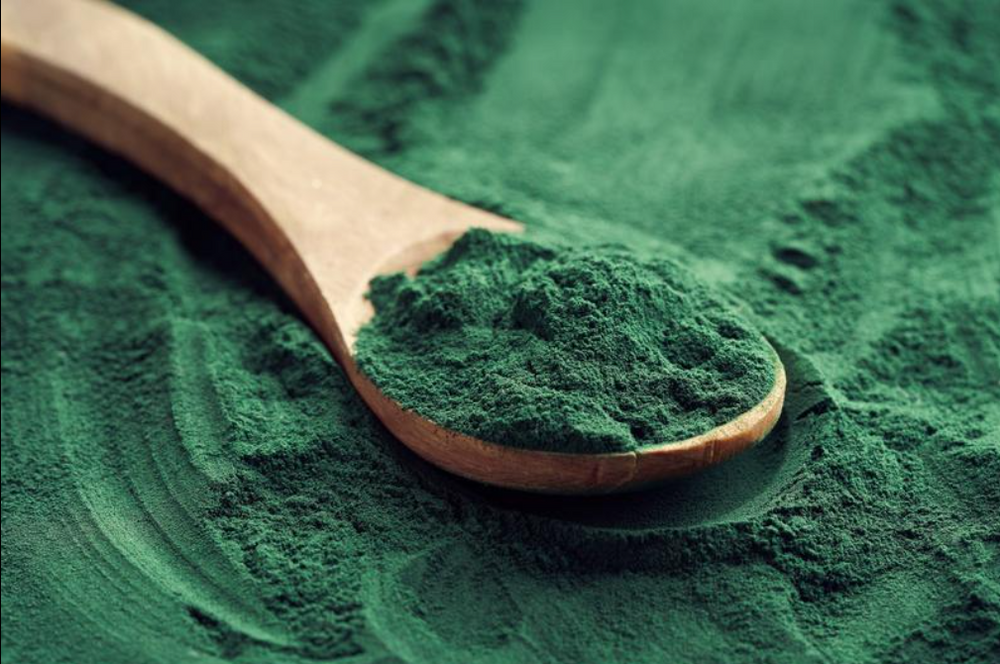
The Benefits of Spirulina, the Ancient Superfood of the Aztecs (and NASA)
It’s become quite popular on social media for people to share images of Americans at the beach or going about their daily lives from the 1950s or 1970s to ask what has happened to our health. Outside of Jack Lalane or a few others, there really was no need for fad dieting, meal skipping, fasting, or going to extremes to get in shape. Everyone ate three meals a day, nobody skipped dessert, and people seemed to be in generally far better shape than we are now.
Some believe that the drastic reduction in our overall health and increase in obesity rates have come from the preservatives & chemicals that much of our food is now laden with, which has spurred a whole food revolution with people wanting to take control of their health. If we want to visit the diets of yesteryear to find what pre-preservative food is best for humans, it may be best to rocket far beyond the 1950s or 1970s, and instead, visit the time of the Aztecs (which NASA has apparently already done).
The Aztecs utilized a superfood that provided better and more wholesome protein than eggs, acted as an endurance booster for their messengers who had to take messages to other cities via marathon runs, and even used it to treat diseases. As a microcell organism that grows in both salt & fresh water and is believed to be one of the oldest lifeforms on earth, it seems that nature has had the answers that we’ve needed for our health all along, just waiting for us to discover them.
Spirulina was first used by the Aztecs but became widely popular in our time when NASA began to investigate the ability to grow it in space for use by their astronauts. The idea of a mission to mars has been on the drawing board for a very long time, but one of the constraints for that mission is the vast distance and time that it will take to reach it, so NASA has had to come up with some unique ideas to sustain anyone making the journey. As it turns out, their research into spirulina has not only given them a potential food source but has also brought a superfood back into popularity for our time.
Is it OK to take spirulina daily?
Spirulina is safe for most people to take daily, but there are some contraindications for people with certain conditions who should consult with their doctor before adding it to their diets. If you do not have any of the conditions that we will discuss below, it is generally agreed upon that taking up to eight grams of spirulina a day is not only safe but can provide a vast array of benefits to your health. A standard dose is typically one to three grams of spirulina per day.
Key Health Benefits of Spirulina
What is spirulina?
Spirulina is a blue-green algae, believed to be one of the oldest lifeforms on earth, that grows in both fresh and salt water. It is one of the world’s most popular supplements, but it has a bitter taste, so most people mix spirulina with yogurts, juices, or smoothies to improve its flavor while taking advantage of its health benefits. Spirulina is a powerful source of nutrients, and a single tablespoon (seven grams) of spirulina provides the following benefits:
- Protein: 4 grams
- Vitamin B1 (thiamine): 11% of the Recommended Daily Allowance (RDA)
- Vitamin B2 (riboflavin): 15% of the RDA
- Vitamin B3 (niacin): 4% of the RDA
- Copper: 21% of the RDA
- Iron: 11% of the RDA
- It also contains decent amounts of magnesium, potassium, manganese, and small amounts of almost every other nutrient that you need.
Spirulina may be the most nutritious food on the planet in terms of single doses, and one tablespoon only provides a small number of calories (20), 1.7 digestible carbohydrates, and one gram of fat (that is heavy in omega-3 and omega-6 fatty acids).
Phycocyanin is the plant pigment that gives spirulina its color and is also an extremely powerful source of antioxidants, pain relief, anti-inflammatory, and brain-protective properties.
The antioxidant and anti-inflammatory benefits of spirulina
Oxidative damage can harm your DNA and the cells of your body, leading to chronic inflammation, heart disease, cancer, and other health issues. The phycocyanin that gives spirulina its blue-green coloring is an excellent source of antioxidants, which not only protect your cells against oxidative damage but also fights free radicals and inhibits the production of inflammatory-signaling molecules inside of your body that can trigger disastrous health effects.
Phycocyanin has not only been found to reduce inflammation but also to block tumor growth and kill cancer cells present within your body. This immunity-strengthening protein is currently being studied for its potential to be used as a cancer treatment.
Spirulina to reduce cholesterol and “bad” triglycerides
Heart disease is the leading cause of death in the world and can be a result of any number of things. Some of us are genetically predisposed to have high cholesterol and spend much of our life having to monitor our intake or taking supplements such as spirulina for their cholesterol-lowering benefits. Others are genetically built to rid their body of cholesterol naturally and can spend their lives eating anything they want.
For those of us who do have to be concerned about cholesterol (which is, unfortunately, most of us), spirulina positively impacts most of the factors that can eventually lead to heart disease. Not only does spirulina provide the benefits of lowering total cholesterol, “bad” cholesterol (Low-Density Lipoproteins or LDLs), and triglycerides, but the presence of the omega-3 and omega-6 healthy fats mean that spirulina also raises your good cholesterol. If you’re the type of person who doesn’t like to eat fish but knows that you should for the fatty (omega) acids, spirulina can help provide those same benefits without having to add fish to your diet.
One study of 25 people with Type 2 diabetes found that 2g of spirulina a day significantly reduced their “bad” cholesterol markers. Another study of people with high cholesterol found that 1g of spirulina per day helped to lower their triglycerides by 16.3% and reduced their Low-Density Lipoprotein count by over 10%.
Spirulina also provides a one-two bunch in regards to its benefits of both antioxidants and cholesterol reduction, because it is the fatty structures in your body that are most susceptible to oxidative damage. One of the key drivers of heart disease is the oxidation of LDL cholesterol, and the antioxidants present in spirulina are extremely effective against this as they attack both the high LDL counts and fight against oxidation.
Spirulina’s anti-cancer properties
Some animal-based studies have shown that spirulina also provides benefits in the fight against cancer. This research has shown that it may fight to both reduce cancer occurrence and tumor size. The benefits of spirulina against oral cancers are the most well documented, and the results are quite promising.
A study of 87 participants in India found that 1g of spirulina per day for a year led 45% to see their lesions disappear, compared to only 7% of the control group who did not take spirulina. When the members of the group stopped taking spirulina, nearly half of them saw their lesions redevelop. Another study of 40 individuals with pre-cancerous lesions in their mouths took 1g of spirulina a day and had greater improvements in their health than those who took a well-known cancer-fighting medication.
Potential risks of taking spirulina
While spirulina is a superfood that is extremely high in nutrients, there are several health concerns that may outweigh the benefits of spirulina if you have them. If you have any of the following, you should consult with your doctor before adding spirulina to your daily diet:
- Pregnancy
- Bleeding disorders
- Diabetes
- Auto-immune disorders
- Taking daily medications to treat diabetes, immunosuppressants, or blood thinners
- B12 deficiency
Shop Green Vibrance Products
As diseases like cancers and heart disease continue to become more prevalent in our society, people are beginning to look outside of traditional medicine for answers. We are starting to discover that many of the things that humans need in their diets for optimal health and disease prevention already exist within nature, and the many benefits of spirulina show that it should be a part of each of our daily diets.
The Green Vibrance products from Vibrant Health make it extremely easy to get your daily dose of spirulina, wheatgrass, antioxidants, probiotics, and everything else that you need to live a healthy life. One serving of Green Vibrance includes 600mg of certified organic spirulina powder, which can help you capture the benefits that spirulina has to offer for your health.
Whether you prefer the daily drinks or a capsule to take with your vitamins, visit the Vibrant Health store today to pick up a bottle of Green Vibrance and begin your journey into the next evolution of your healthy lifestyle.

Why Trust Vibrant Health?
At Vibrant Health, we’ve been pioneers in science-backed nutrition for over 30 years, formulating transparently sourced superfood supplements that prioritize real results. Our blog is an extension of that commitment—a trusted resource for expert-driven wellness insights.
Every article is crafted with nutrition expertise, backed by the latest scientific research, and reviewed by our in-house Certified Health Coaches and Product Educators. We break down complex health topics into practical, actionable advice—helping you make informed choices about superfoods, supplementation, and holistic wellness.As a brand that has earned thousands of 5-star reviews and the trust of health professionals, we ensure that our content reflects the same quality, integrity, and transparency as our products.
Your wellness journey deserves accurate, credible, and empowering guidance. That’s why Vibrant Health’s blog is here—to help you live a healthier, more vibrant life, backed by real expertise


